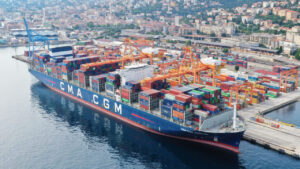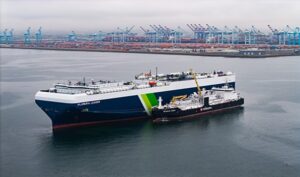Ocean Network Express (ONE) has announced it has successfully trialled the use of biofuel to power its M/V MOL Experience vessel.
Completed on 7 February 2021, sustainable biofuel was blended with conventional fossil fuels, enabling the vessel to make the Atlantic crossings between Europe and the USA.
The vessel bunkered at the Port of Rotterdam in November 2020. The trial was performed in collaboration with shipowner Mitsui O.S.K. Lines and biofuel provider GoodFuels.
Takeshi Mishima, General Manager of Fleet Management at ONE, said: “The cooperation and coordination between GoodFuels and ONE was excellent and the successful completion of the trial has confirmed that for ONE, biofuel is one of the solutions to reduce Greenhouse Gases.”
General Manager of the Bunker Business Division at MOL, Michihiko Nakano, said MOL Group is “committed to protecting the health of our marine/global environment as its social mission.”
“In order to accomplish the vision, we are pursuing possibilities of various alternative marine fuel options,” he continued.
“The success of this trial led to the verification of the availability of various leading alternative marine fuels and it is in line with the MOL Group’s stance of continuously monitoring technological development trends.”
The advanced biofuel used in the trial is made from waste oils such as used cooking oil. Biofuels are considered to be carbon-neutral because the carbon dioxide that is absorbed by the source of the biomass is equal to the carbon dioxide released when the fuel is burned.
GoodFuels’s biofuels are virtually free of sulphur oxides delivering 80-90% “well-to-exhaust” CO2 reduction versus fossil fuel equivalents. They are functionally equivalent to petroleum-derived marine fuels, and no modification is required to the engine or the fuel infrastructure.
The trial marks a positive step for ONE’s sustainability targets: including the aim to reduce carbon dioxide emissions (in gram/TEU-KM) by 25% for its 2018 baseline by 2030, and 50% by 2050.








